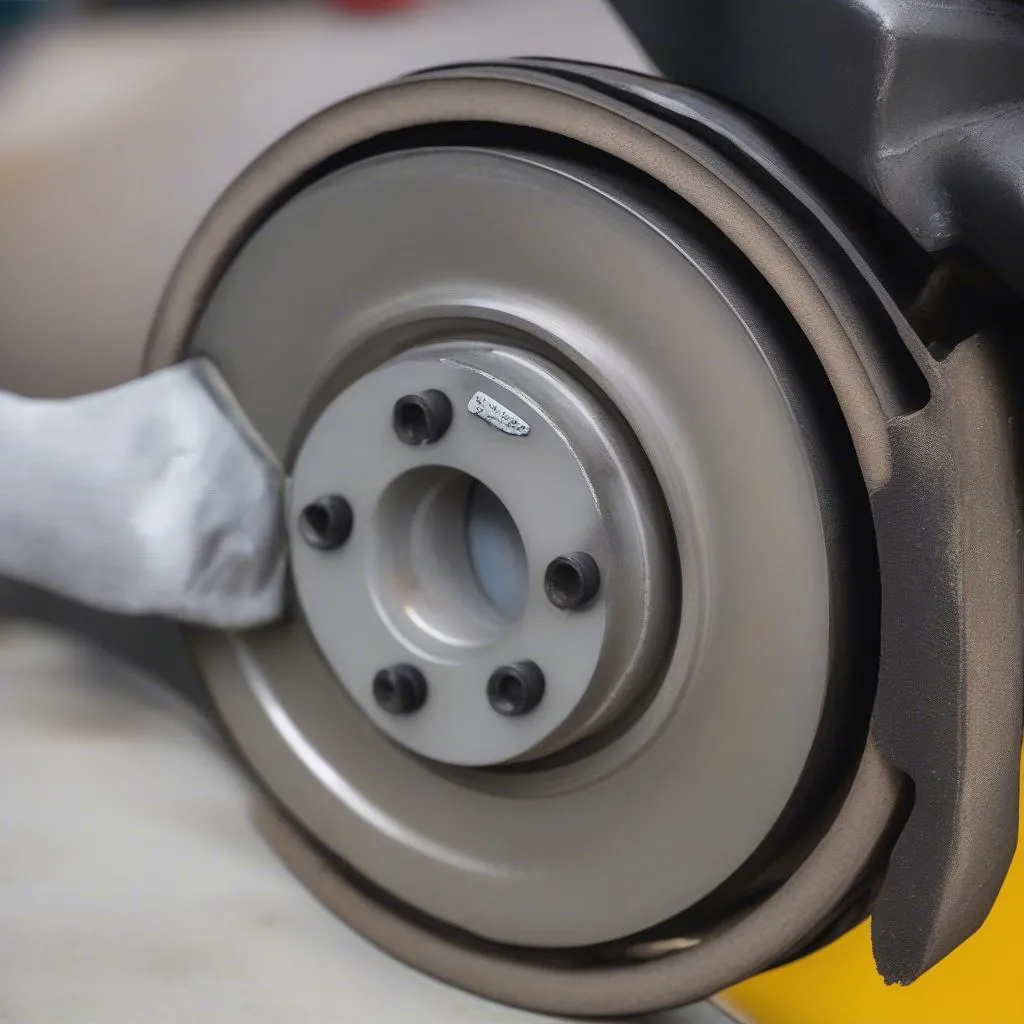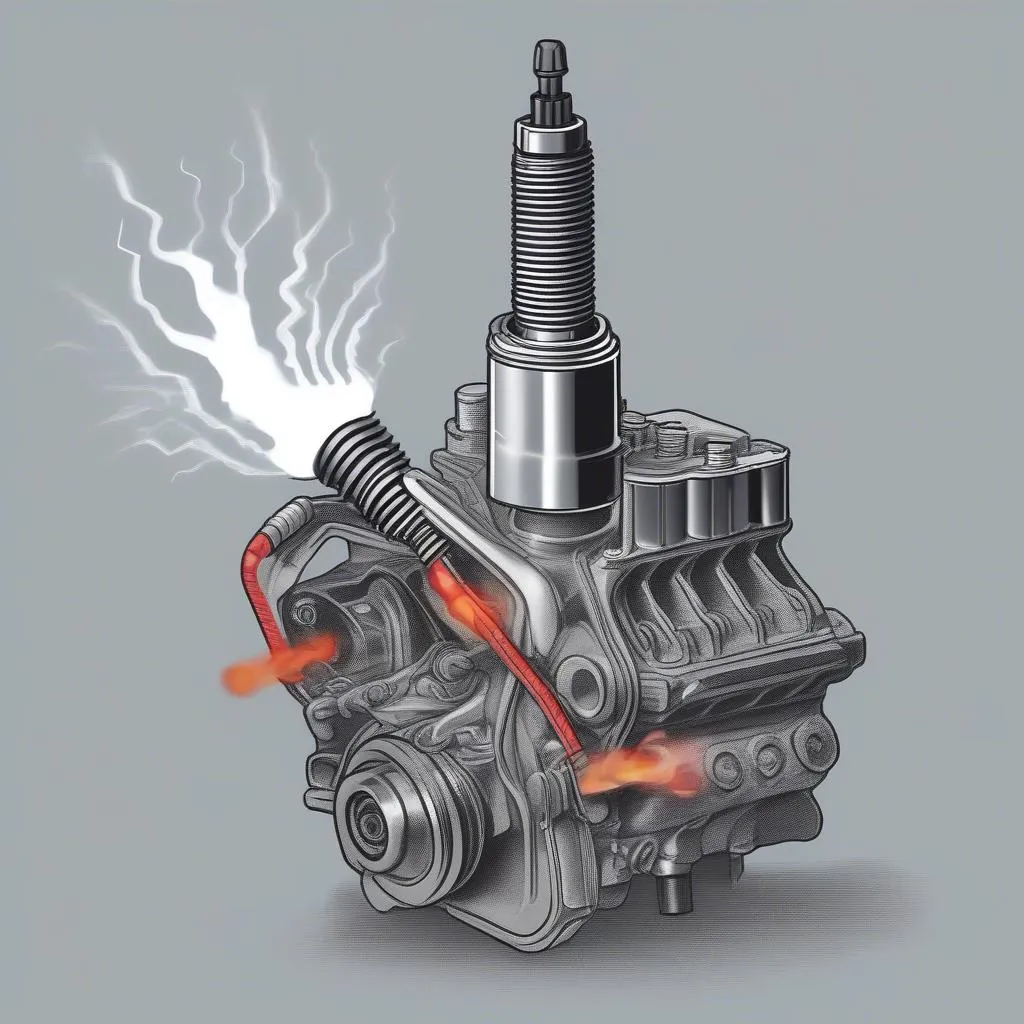Have you ever been driving down the road, enjoying a nice relaxing drive, when suddenly your car starts to shake? It can be a jarring and unsettling experience, leaving you wondering what’s wrong with your vehicle. You might be thinking, “What’s the deal with this car shake?”
This is a common issue that many drivers encounter, and it can be caused by a variety of factors. Understanding the causes of car shakes is essential for diagnosing the problem and finding the right solution. So, buckle up, and let’s dive into the world of car shakes and explore what makes your car tremble.
What Does a Car Shake Mean?
Car shakes are a common problem that can be caused by many different factors. They can be a sign of a minor issue that’s easily fixed or a more serious problem that requires professional attention.
From a mechanic’s perspective, “car shakes” generally refer to vibrations or tremors felt in the car, particularly in the steering wheel, the floorboard, or the entire vehicle.
From a technical standpoint, car shakes are often a symptom of an imbalance in the engine’s power delivery. This can be caused by a variety of issues, including problems with the ignition system, fuel system, or engine mounts.
From a financial point of view, car shakes can lead to costly repairs, especially if the problem is left unchecked. Early diagnosis and repair can help to prevent further damage and save you money in the long run.
Why Does My Car Shake?
There are numerous reasons why your car might be shaking. Let’s explore some common culprits:
Engine Problems
- Spark plugs: If your spark plugs are worn out or fouled, they can cause your engine to misfire, leading to car shakes.
- Ignition coils: These components are responsible for delivering electricity to the spark plugs. If they fail, it can cause misfires and car shakes.
- Fuel injectors: If your fuel injectors are clogged or malfunctioning, they can prevent the engine from receiving the proper amount of fuel, leading to car shakes.
- Fuel pump: A faulty fuel pump can reduce fuel pressure, causing the engine to misfire and shake.
- Engine mounts: These are the rubber or hydraulic components that isolate the engine from the frame. If they are damaged, they can allow the engine to move excessively, resulting in vibrations that you feel in the cabin.
Transmission Problems
- Transmission mounts: These mounts support the transmission and help to isolate it from the frame. If they are worn out, they can allow the transmission to vibrate, causing car shakes, particularly when accelerating or shifting.
- Torque converter: This component is responsible for connecting the engine to the transmission. If it malfunctions, it can cause car shakes, especially when accelerating or decelerating.
Tire and Wheel Issues
- Unbalanced tires: Uneven weight distribution in the tires can cause vibrations and shaking, especially at higher speeds.
- Worn tires: If your tires are worn out, they can cause the car to shake, especially at higher speeds.
- Bent rims: Bent rims can cause the tires to wobble, leading to vibrations and shaking.
- Loose lug nuts: Loose lug nuts can cause the wheels to vibrate, leading to car shakes.
Other Potential Causes
- Brakes: Worn brake pads or rotors can cause the car to shake when braking.
- Suspension: Damaged suspension components, such as worn shock absorbers or loose control arms, can cause the car to shake.
- Loose or damaged exhaust: A loose or damaged exhaust system can create vibrations that can be felt in the cabin.
- Engine timing: If the engine’s timing is off, it can cause misfires and car shakes.
- Alternator: A malfunctioning alternator can cause car shakes if it’s not supplying enough power to the engine.
Car Shakes: What to Do
If you notice your car shaking, it’s important to address the problem promptly to avoid further damage and ensure your safety. Here are some steps you can take:
1. Inspect Tires and Wheels
- Check your tire pressure. Low tire pressure can cause car shakes, especially at higher speeds.
- Inspect your tires for any signs of wear and tear, such as uneven wear patterns, cracks, or bulges.
- Examine your rims for any signs of damage, such as bends or cracks.
- Make sure your lug nuts are tight. Use a torque wrench to ensure they are properly tightened.
2. Check Engine Light
- If your “check engine” light is on, it’s a good idea to have your car scanned by a mechanic. A diagnostic code reader can help pinpoint the cause of the problem.
3. Listen to Your Car
- Pay attention to any unusual noises, such as knocking, rattling, or grinding sounds. These noises could indicate a problem with your engine, transmission, or suspension.
4. Take It to a Mechanic
- If you’re not comfortable inspecting your car yourself or if you suspect a more serious problem, it’s best to take your car to a qualified mechanic for diagnosis and repair.
When Should You Be Worried About Car Shakes?
While car shakes can be a nuisance, it’s important to know when they are a sign of a serious problem. Pay close attention if:
- The car shakes violently.
- The car shakes at low speeds.
- The shaking gets worse over time.
- The car is making other unusual noises.
- The “check engine” light is on.
Car Shakes: Common Questions
Q1: My car shakes only when I’m accelerating. What could be the problem?
A1: Car shakes that occur only during acceleration are often related to engine or transmission problems.
- Possible Causes: Faulty spark plugs, ignition coils, fuel injectors, or engine mounts.
- Solutions: Replace the faulty component.
Q2: My car shakes at high speeds. What could be the problem?
A2: Car shakes at high speeds are often related to wheel and tire issues.
- Possible Causes: Unbalanced tires, worn tires, or bent rims.
- Solutions: Get your tires balanced, replace worn tires, or have bent rims repaired.
Q3: My car shakes when I turn left at high speeds. What could be the problem?
A3: Car shakes when turning left at high speeds could be a sign of a problem with the suspension or steering system.
- Possible Causes: Worn shock absorbers, loose control arms, or a problem with the power steering system.
- Solutions: Replace worn components or repair the power steering system.
Q4: My car shakes when I’m braking. What could be the problem?
A4: Car shakes when braking are often related to brake problems.
- Possible Causes: Worn brake pads or rotors, warped rotors, or problems with the brake calipers.
- Solutions: Replace worn brake pads or rotors, have warped rotors resurfaced, or repair the brake calipers.
Q5: My car shakes when I’m going over 50 mph. What could be the problem?
A5: Car shakes at 50 mph could be caused by a variety of issues.
- Possible Causes: Unbalanced tires, worn tires, bent rims, loose lug nuts, or problems with the suspension.
- Solutions: Get your tires balanced, replace worn tires, have bent rims repaired, tighten loose lug nuts, or have the suspension inspected.
Car Shakes: Don’t Ignore the Problem
Car shakes can be caused by a variety of factors. Early diagnosis and repair can help to prevent further damage and ensure your safety.
If you are experiencing car shakes, don’t ignore the problem. It’s a good idea to have your car checked by a qualified mechanic.
For expert advice on diagnosing and repairing car shakes, and to learn about our range of diagnostics tools, contact us on WhatsApp: +84767531508.
 unbalanced-tire-car-shake
unbalanced-tire-car-shake
 worn-brake-pads-car-shake
worn-brake-pads-car-shake
 engine-misfire-car-shake
engine-misfire-car-shake